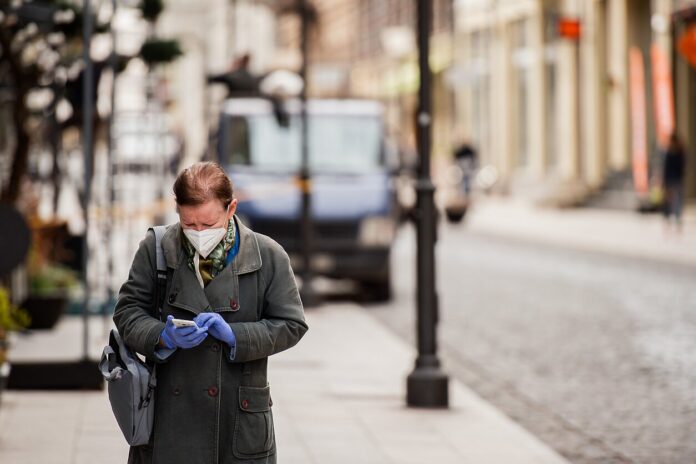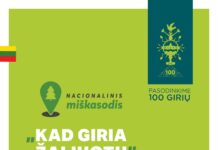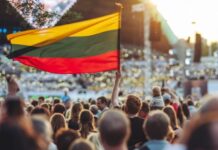
Military Action must Stop
Foreign Minister Linas Linkevicius is calling on Armenia and Azerbaijan to seek peaceful resolution after heavy fighting erupted in Nagorno Karabakh on September 27. He warned that the existing situation might escalate to a disastrous war claiming many civilian lives, and encouraged the countries actively involved in the Minsk Group, i.e., France, the United States, Russia and the OSCE, to take action. Only peaceful dialogue can avert the crisis, said Linkevicius, emphasizing that both Armenia and Azerbaijan must remember their international commitments. He has already tried to contact representatives of both countries. Linkevicius will be discussing the military confrontation in Nagorno Karabakh with the French president during Emmanuel Macron’s visit to Lithuania today, especially because France is involved in the negotiations to resolve this issue.
Sanctions on Belarus
On September 25, Lithuania, Latvia and Estonia expanded sanctions against Belarusian officials responsible for vote-rigging and violence against peaceful protesters. Lithuania and Estonia blacklisted another 98 officials, including judges and law-enforcement officers, and Latvia added 101 people to its sanctions list. Lithuanian Foreign Minister Linas Linkevicius explained that the new round of sanctions was prompted by the European Union‘s delay in imposing bloc-wide sanctions and last week’s inauguration of Lukashenko, who is not recognized by the West as the legitimate president of Belarus. Lithuania, Latvia and Estonia blacklisted Lukashenko and several dozen other officials in late August.
The EU has so far failed to impose sanctions against the Belarusian regime due to a diplomatic dispute with Cyprus, which refuses to approve the measures unless the bloc takes tougher action on Turkey over natural gas exploration in the disputed waters of the Mediterranean.
The EU must continue to seek bloc-wide sanctions and discuss assistance to victims of repression, according to the minister. The United States and the United Kingdom are also considering sanctions against the Lukashenko regime.
Lithuania’s blacklist now includes 12 judges of Belarus’ Constitutional Court and five judges of the Supreme Court, and high-ranking officials of the Security Council, the Investigative Committee, the Interior Ministry, police, OMON and the president’s administration, as well as members of the parliament.
GDP Forecast
Lithuania will likely finish the year with a drop in its annual GDP, but the decline is one of the slightest in Europe, according to the governor of the Bank of Lithuania, Vitas Vasiliauskas. The result of the first half-year period is a decline of 0.8%. According to the bank’s forecasts, Lithuania’s annual GDP will decrease by 2%, before growing by 3.1% in 2021. In June, the Bank of Lithuania expected the economy to contract by 9.7%, Vasiliauskas noted. In the second quarter of 2020, Lithuania’s economy dropped 4%, one of the smallest declines in the EU. By comparison, Ireland’s economy fell by 3.7% – the best result in the EU, while Estonia’s shrank by 6.5%, and Latvia’s – by 8.6%. According to Vasiliauskas, the milder than expected decrease in Lithuania is due to economic stimulus deployed by the government as well as relatively good economic conditions in Lithuania’s main export markets. However, economic recovery remains fragile in these uncertain times. To soften the economic effects of the coronavirus pandemic, the government was forced to take on loans, thus the Bank of Lithuania estimates that the national debt will rise by 10 points this year, to almost 50% of the GDP.
COVID-19 Update
Since the outbreak of the pandemic, Lithuania has recorded 4,490 coronavirus cases, with 2,051 active cases, 2,327 recoveries and 92 deaths from the infection. Currently 18,599 people are self-isolating in Lithuania. Since June 1, 261 imported cases have been detected and 50,202 tests performed, 6,028 of them on September 24.
On September 28, Lithuania confirmed 105 new coronavirus cases, according to the National Public Health Centre (NVSC). Most of the new cases (44) were diagnosed in Kaunas County. The municipality of Raseiniai remains one of the biggest hotspots in the country with 19 new cases. In all, 43 of the new cases have been linked to known clusters, while the sources of 16 infections have yet to be specified, according to the NVSC. Currently, 22,147 people are in isolation. They include active cases, their close contacts and travellers subject to self-quarantine.
Germany, Iceland and San Marino have been added to Lithuania’s list of coronavirus-affected countries, meaning that travellers from these countries are required to go into 14-day quarantine after arriving in Lithuania. Estonia and Poland have also exceeded the limit of Covid-19 infections – 25 new cases per 100,000 over the last two weeks. However, citizens and legal residents of these countries are exempt from self-quarantine when travelling to Lithuania for work, study, agricultural activities or healthcare. Travellers crossing Poland will not be required to self-isolate, as long as they are coming from a non-affected country and made only essential stops in Poland. Kazakhstan and Saudi Arabia were crossed out of Lithuania’s coronavirus-affected countries. Last weekend, Latvia imposed self-quarantine on travellers from Lithuania, negatively affecting businesses operating near the border.
Lithuanian President Gitanas Nauseda and Prime Minister Saulius Skvernelis have tested negative for COVID-19, as confirmed on September 25.





























